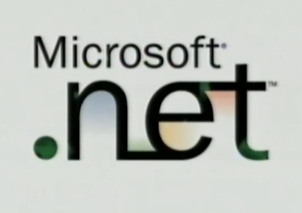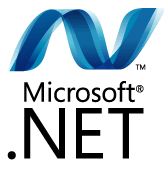| .NET Celebrates 20th Anniversary of Launch |
| Monday, 14 February 2022 | |||
|
The first stable version of the .NET Framework was released on February 14th, 2002, after being in beta for almost two years. So today we can wish .NET a Happy Birthday and consider its highs and lows.
to build the kind of experiences that we think business and individuals are going to expect. .NET introduced C#, a "brand new language" pioneered by Anders Heilsberg and Visual Basic .NET, which on the basis of its name was expected by many to be a successor to the very popular Visual Basic 6.0 and was doomed to failed to live up to this standard. From today's perspective there was an important milestone in 2014 when Microsoft formed the .NET Foundation and started to open source .NET components.
In 2015 something that would have been unthinkable in the previous decade happened - .NET under Linux - and the following year saw version 1 of the cross-platform open source .NET Core. Fast forward to today and the latest stable release is .NET Core 6.0. If this all seems a very straightforward story the reality has been a much rougher ride. The early years of .NET represent a diferent era in the relationship between Microsoft and developers. I have to say "developers" to echo the famous quote by CEO Steve Ballmer "Developers, Developers - Developers!!!". No he wasn't swearing at us, he was stating that as far as Microsoft was concerned we were their main priority and .NET was the flagship. We either got onto the flagship and helped row it somewhere special or we could abandon MS tech and use Java or something even more grubby and low level like C++. There was a clear demarcation between MS tech and "other" tech. This wasn't too bad because .NET was a really good and very desirable reinvention of the software environment. It had an intermediate language, CIL, that didn't suck and a new language, C#, that was clean and modern and avoided many of the problems of existing languages. About the only downside was VB .NET which really wasn't a replacement for VB6, which had by this time evolved into something usable. There was, and there probably still is, a bad taste in the mouth about having to swallow Microsoft's order to abandon all the good, and some bad, software that we had built using VB6. This was heavy-handed, but at the time the attractions of .NET and the way it allowed easy access to difficult things like COM, DCOM and Automation was all worth it. It really was all very promising and many, well nearly all, bought into the future with WPF, WCF, WF and something called Cardspace that quickly sank without trance - the four pillars of .NET. Even web dev was catered for with ASP .NET, a technology that was so far ahead of its time that it was inevitable that it would have to mutate into something different to make it actually work. But don't underestimate its importance - MS programmers didn't think that JavaScript was a technology that had much future. The future was Silverlight - basically Windows in the browser. It was even going to be the basis for the Windows phone that would take over the mobile world.
Of course, it all collapsed. Windows 8 was a meglomanic's disaster - we could all see it, but the Microsoft team couldn't. To make it work it was necessary to rip up the foundations of .NET, kill off Silverlight, reinvent Windows Phone as a pure C++ environment and basically recenter development on C++ and COM, but repackaged slightly to make it seem simpler and easier to use. The whole thing was a crazy plan based more on office politics rather than office technologies. The result we all know about. Windows 8 was so bad that MS distanced itself from it by going straight to Windows 10. Windows Phone was a huge flop and made the whole effort seem pointless. The need to make Azure a reasonable competitor to AWS .NET had to be downplayed along with Windows. Azure demanded that Microsoft support non-Microsoft technologies - Python, Linux, Java and whatever else the cloud needed. At this point .NET became an expensive irrelevance to Microsoft's success. To give them credit, MS don't just pull the plug, they open washed it.... OK I agree you might think that it really was a sincere attempt to bring something wonderful to the open source community. It was, but Microsoft really doesn't see it as part of its future, but can't simply drop it without making a lot of people very angry. This is all a tragedy - I think the geek chorus will make an appearance any second lamenting the loss of opportunity. Ah .NET you are still around after 20 years, but you promised so much more... More InformationRelated Articles Microsoft And Red Hat To Bring .NET To Linux NET Core Version 1 Released - So What? .NET Core 3 - Microsoft Is Almost Back Where It Started Microsoft Releases .NET 6 And Visual Studio 2022 Not Dumping .NET - Microsoft's Method Dumping .NET - Microsoft's Madness To be informed about new articles on I Programmer, sign up for our weekly newsletter, subscribe to the RSS feed and follow us on Twitter, Facebook or Linkedin.
Comments
or email your comment to: comments@i-programmer.info of the
|
|||
| Last Updated ( Thursday, 26 May 2022 ) |

 Microsoft announced its .NET generation of technologies to developers attending PDC (Professional Developers Conference) in Florida in 2000. By that time Microsoft had already been working on its Next Generation Windows Services (NGWS) for a couple of years and Paul Maritz told delegates these new technologies were intended:
Microsoft announced its .NET generation of technologies to developers attending PDC (Professional Developers Conference) in Florida in 2000. By that time Microsoft had already been working on its Next Generation Windows Services (NGWS) for a couple of years and Paul Maritz told delegates these new technologies were intended:





